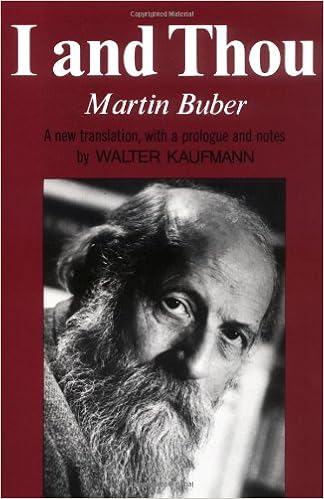Description
In many ways, "I and Thou" is regarded as a classic. The book is a very profound proposition about how to approach our existence in the world. Relationships are a major theme in the book, as they provide meaning to human existence. Buber says that at the end of the day, every relationship leads us to God, who is the Eternal Thou.
The most recent translation of the original book has a lot of footnotes that explain where the previous version got things wrong or was unclear. Additionally, professor Walter Kaufmann, who retranslated "I and Thou," wrote an extensive prologue that shed new light on the book and on Buber's philosophy.

Support the Author
At this time, the author does not have an official website or active social media channels on platforms like Instagram, Facebook, or Twitter—or they are currently unknown to us. If any updates come to light, we’ll include them here so you can stay connected.
About The Author
Martin Buber (PhD) (1878–1965) was an Austrian-born Jewish philosopher and theologian renowned for his philosophy of dialogue. He served as an honorary professor at the University of Frankfurt am Main. His seminal work "I and Thou" (1923) examines the nature of human relationships, emphasizing the importance of genuine, reciprocal interactions and the distinction between treating others as subjects ("Thou") versus objects ("It").
Martin Buber (PhD) (1878–1965) was an Austrian-born Jewish philosopher and theologian renowned for his philosophy of dialogue. He served as an honorary professor at the University of Frankfurt am Main. His seminal work "I and Thou" (1923) examines the nature of human relationships, emphasizing the importance of genuine, reciprocal interactions and the distinction between treating others as subjects ("Thou") versus objects ("It").
Language
English
Topic
Mental Health, Spiritual Health, Relationships, Continuous Development

I AND THOU
I AND THOU
ISBN 10|13
0684717255 | 978-0684717258
Print Length
192 pages